2021 in numbers
January
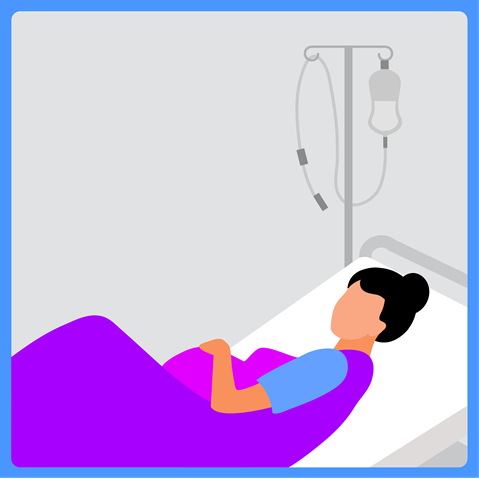
PMNCH supports the BRANCH Consortium and The Lancet in launching the Lancet Series on Women’s and Children’s Health in Conflict Settings. More than 1300 people from 85 countries participate in the online launch event.
In response to the rescinding of the Mexico City Policy or “Global Gag Rule”, PMNCH issues a statement expressing its hope that the new Biden administration will go beyond restoring American financial support for overseas organizations providing family planning and other essential reproductive health services.
February
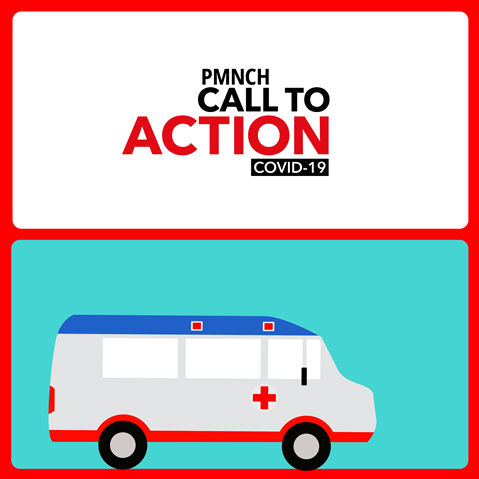
PMNCH publishes seven knowledge-to-action briefs to support partners carrying forward the Call to Action on COVID-19 and mitigating the devastating effects of the pandemic on the health of women, children and adolescents, and the societies and economies that support them.
PMNCH and partners publish the Nurturing care for children living in humanitarian settings thematic advocacy brief, summarizing the actions needed to minimize the impact of emergencies on the lives of young children and their families.
PMNCH endorses new constituency leadership and Executive Committee representatives as part of the governance reform approved by its Board in December 2020.
March
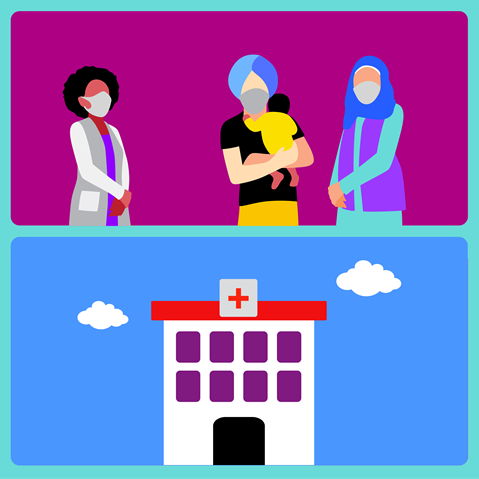
Global Health 50/50 ranks PMNCH in the top 20% of 201 organizations in terms of their successful advancement of gender equality, both internally and in their health-related COVID-19 responses and other health programmes.
PMNCH coordinates an open letter published in The BMJ and signed by 30 leading global health and youth experts, supporting a Call to Action for Adolescent Well-Being during COVID-19 and beyond, and urging a concerted and collaborative approach to meet the needs of the world’s 1.2 billion adolescents
April
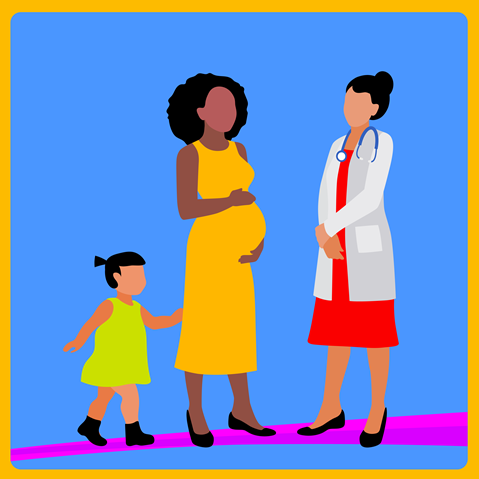
In a BMJ commentary, Helen Clark, PMNCH Board Chair, and Anuradha Gupta, Deputy CEO of Gavi, the Vaccine Alliance, call for the most vulnerable women, children, adolescents and health workers to be prioritized in the provision of COVID-19 vaccines and essential health services.
Responsive Caregiving during COVID-19, the third in a series of short, animated videos focusing on self-care interventions during COVID-19, is released accompanied by a partner toolkit with messages, images and tips for other ways to use the self-care series.
May
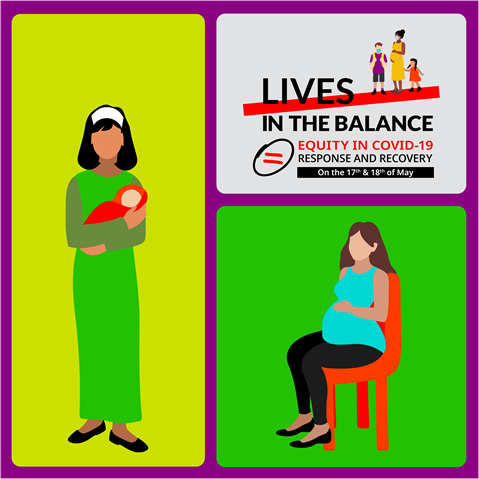
PMNCH, the Global Financing Facility, Gavi, the Vaccine Alliance, and the CORE Group host the third virtual Lives in the Balance summit. Attended by 5000+ participants in over 120 countries, the focus is on implementation of and accountability for commitments to the Call to Action on COVID-19.
PMNCH and over 80 partners write 15 papers on adolescent well-being. Published in The BMJ, the papers synthesize evidence relating to the Adolescent Well-Being Framework, to inform multistakeholder consultations in preparation for the Global Summit for Adolescent Well-Being in 2023.
PMNCH provides communication support for the launch of The State of the World’s Midwifery 2021. Building on two previous reports, the report documents the global sexual, reproductive, maternal, newborn and adolescent health workforce, with a particular focus on midwives.
June

PMNCH coordinates the preparation and publication of Finding Hope, which documents the lived experiences of over 30 000 people during the first few months of the COVID-19 pandemic, mainly women and adolescents, in India and 42 countries in Africa, Latin America and the Caribbean.
PMNCH and UHC2030 develop the Health Budget Toolkit to strengthen the capacities of civil society organizations, the media and parliaments to advocate for health budgets.
Members of the PMNCH Health-Care Professional Associations constituency author an op-ed in The BMJ highlighting grave inequalities in the availability, supply and safe delivery of oxygen to certain populations and calling on governments to remedy such inequalities.
July
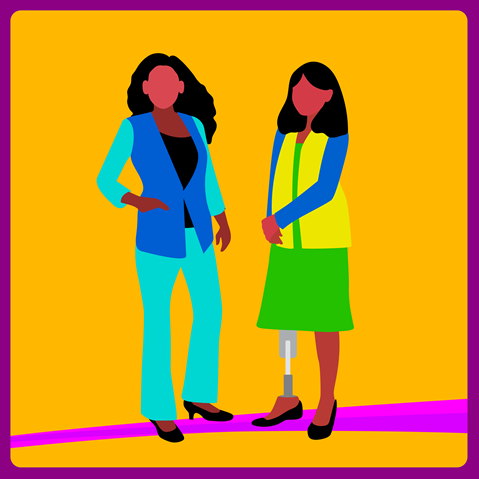
Rise, Respond, Recover, an action brief by PMNCH, WHO, UNICEF and UHC2030, summarizes the latest evidence on women’s, children’s and adolescents’ health and well-being. It is published during an official side event to the UN High-Level Political Forum for Sustainable Development co-hosted by the Permanent Mission of Estonia to the UN and the Government of Estonia and co-organized by PMNCH, UNICEF, UNFPA, WHO and UHC2030 to promote coordinated action among global and national partners.
Michelle Bachelet and Helen Clark, former and current PMNCH Board Chairs, join The Conversation on BBC World Service to talk about their experiences as female leaders and how they have smashed many glass ceilings in the global health and human rights sectors. The broadcast reaches 438 million listeners worldwide.
August
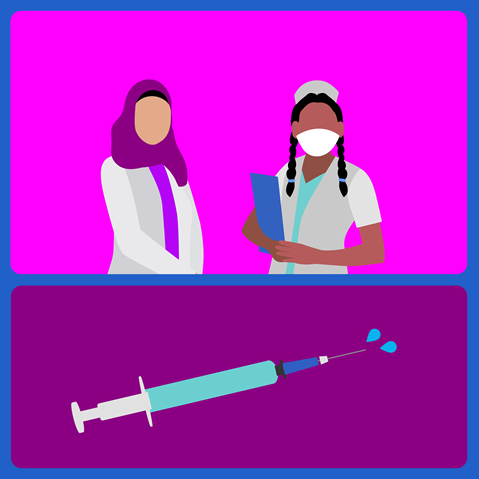
On World Humanitarian Day, PMNCH publishes an op-ed calling for life-saving protection, including COVID-19 vaccines, for humanitarian health-care workers.
The BRANCH Consortium, PMNCH and the Institute for Global Health and Development at the Aga Khan University hold an online regional multistakeholder workshop focused on Afghanistan and Pakistan to enhance coordinated advocacy and action to improve women’s, children’s and adolescents’ health in conflict settings.
September
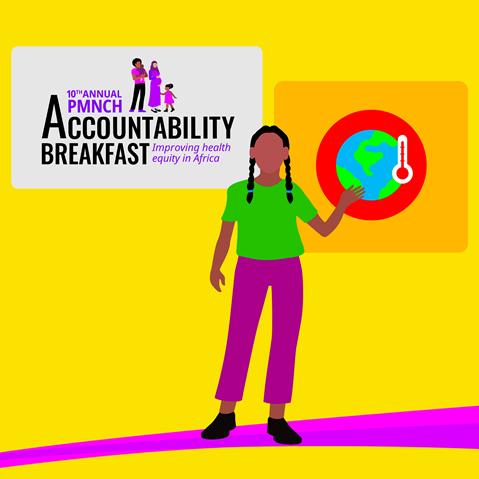
At its 10th Annual Accountability Breakfast, PMNCH announces that US$ 32.1 billion has been pledged to a massive global effort to restore the 40% drop in health services due to COVID-19, bringing the new total of commitment-makers to 20 high-, medium- and lowincome countries. The virtual meeting, which focuses on improving equity for women, children and adolescents in Africa, boasts 13 high-level speakers, more than 735 registrants, and an estimated potential reach of 1.9 million on social media and 2.8 billion via traditional media.
Ahead of the Pre-COP 26 Summit in Italy, PMNCH, the Lancet Countdown: Tracking Progress on Health and Climate Change, Y-PEER, CORE Group and Countdown to 2030 organized a youth-led panel, drawing attention to the critical interlinkages between the climate crisis and adolescent well-being.
October

Helen Clark, PMNCH Board Chair, Winnie Byanyima, Executive Director of UNAIDS, and Githinji Gitahi, Group CEO of Amref Health Africa, produce an op-ed examining the widening and new inequities caused by COVID-19 and outlining areas for urgent action.
In response to COVID-19, PMNCH, Management Sciences for Health and the Global Financing Facility announce the recipients of the second round of funding to support coordinated civil society and youth advocacy in ensuring the continuity of services for women’s, children’s and adolescents’ health.
November
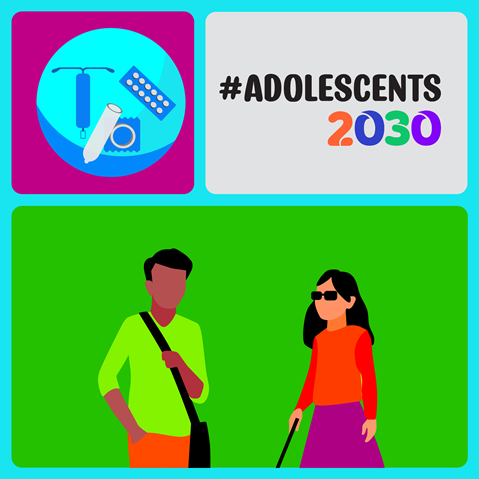
PMNCH releases Sexual and reproductive health and rights (SRHR) in COVID-19. Part of a series, this actionoriented, user-friendly toolkit aims to provide access to guidance, tools and resources useful for responses and advocacy to improve SRHR.
PMNCH coordinates a COP26 event drawing attention to prioritizing adolescents’ well-being in climate adaptation and incorporating adolescent well-being into the COP26 Health Programme.
Mitigating violence against women and children, the final video in a PMNCH series on self-care during COVID-19, is launched. It provides practical guidance on how those experiencing violence can seek help and support. The series has over 115 million views.
The #Adolescent2030 social media campaign begins. This global, youth-led movement coordinated by PMNCH aims to raise the visibility of adolescent well-being through personal stories of young people across the world to build momentum towards the United Nations SDG Summit in September 2023.
The International Association of Adolescent Health (IAAH) awards PMNCH Board Chair, Rt. Hon. Helen Clark, Honorary Fellowship of IAAH, recognizing her longstanding contribution to several issues, including gender equality, women's leadership and adolescent well-being. IAAH also acknowledges the role PMNCH plays as the key partner for multi-stakeholder collaboration around adolescent well-being.
December

Launched during a webinar hosted in collaboration with PMNCH, Countdown to 2030 for Women’s, Children’s and Adolescent’s Health and partners publish 137 new and updated country profiles covering reproductive, maternal, newborn, child and adolescent health, equity and early childhood development.
Findings from a survey sent to the 249 signatories to the Global Consensus Statement on Meaningful Adolescent and Youth Engagement (MAYE) reveal that although a strong case has been made for MAYE, a “how to” guide is needed to accompany its principles and check-list criteria.

.png?sfvrsn=6d0e27cd_1)



